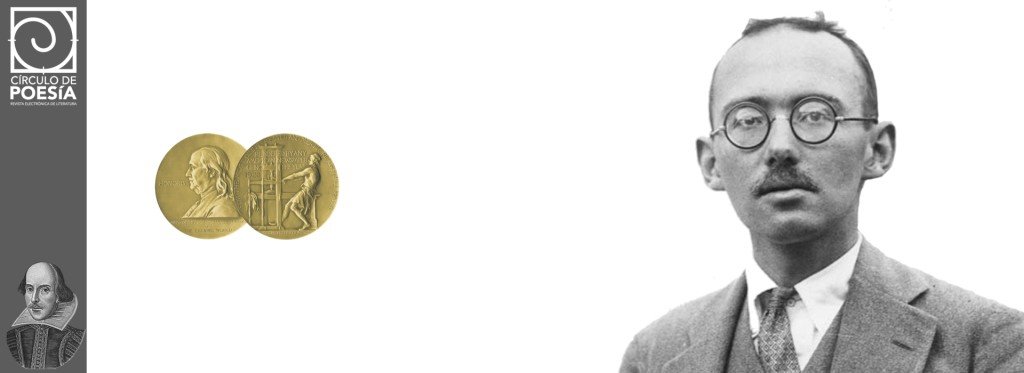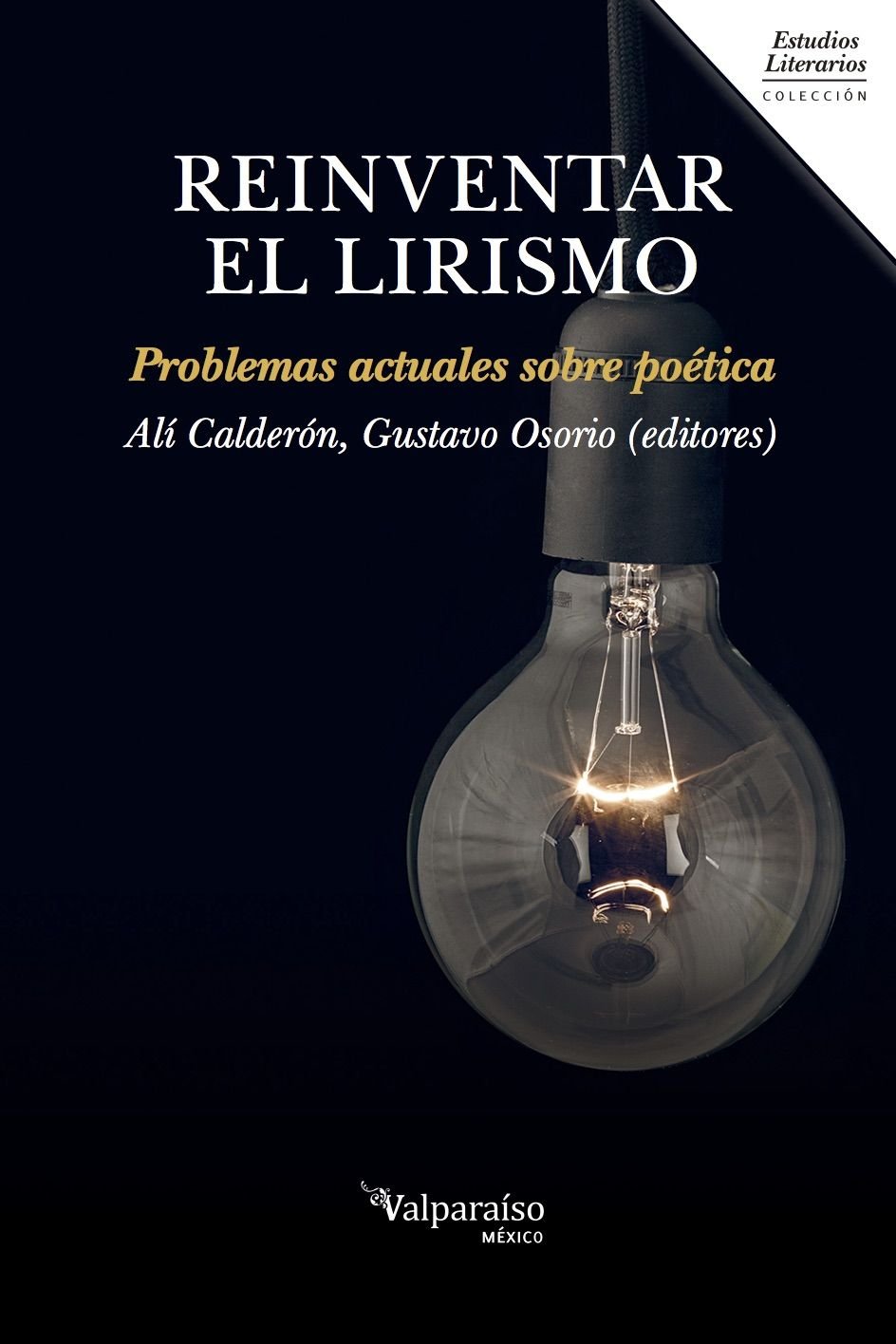Today at Círculo de Poesía, we present “Metropolitan Nigtmare”, a poem by American Stephen Vincent Benét (1898-1943). Known for his lengthy, meditative and humorous social pieces, he earned the Pulitzer Prize in 1929 for his book John Brown’s Body, of which we present here a poem in translation by Sergio Eduardo Cruz.
Hoy en Círculo de Poesía, presentamos “Pesadilla Metropolitana,” un poema del escritor norteamericano Stephen Vincent Benét (1898-1943). Conocido por sus piezas sociales de largo aliento, humorosas y meditativas, ganó el premio Pulitzer en 1929 por su libro El cuerpo de John Brown, del que aquí presentamos un poema traducido por Sergio Eduardo Cruz.

Metropolitan Nightmare
It rained a lot that spring. You woke in the morning
And saw the sky still clouded, the streets still wet,
But nobody noticed so much, except the taxis
And the people who parade. You don’t, in a city.
The parks got very green. All the trees were green
Far into July and August, heavy with leaf,
Heavy with leaf and the long roots boring and spreading,
But nobody noticed that but the city gardeners
And they don’t talk.
Oh, on Sundays, perhaps you’d notice:
Walking through certain blocks, by the shut, proud houses
With the windows boarded, the people gone away,
You’d suddenly see the queerest small shoots of green
Poking through cracks and crevices in the stone
And a bird-sown flower, red on a balcony,
But then you made jokes about grass growing in the streets
And gags and a musical show called “Hot and Wet.”
It made a good box for the papers. When the flamingo
Flew into a meeting of the Board of Estimate,
The new mayor acted at once and called the photographers.
When the first green creeper crawled upon Brooklyn Bridge,
They thought it was ornamental. They let it stay.
That was the year the termites came to New York
And they don’t do well in cold climates—but listen, Joe,
They’re only ants, and ants are nothing but insects.
It was funny and yet rather wistful, in a way
(As Heywood Broun pointed out in the World-Telegram)
To think of them looking for wood in a steel city.
It made you feel about life. It was too divine.
There were funny pictures by all the smart, funny artists
And Macy’s ran a terribly clever ad:
“The Widow’s Termite” or something.
There was no
Disturbance. Even the Communists didn’t protest
And say they were Morgan hirelings. It was too hot,
Too hot to protest, too hot to get excited,
An even African heat, lush, fertile and steamy,
That soaked into bone and mind and never once broke.
The warm rain fell in fierce showers and ceased and fell.
Pretty soon you got used to its always being that way.
You got used to the changed rhythm, the altered beat,
To people walking slower, to the whole bright
Fierce pulse of the city slowing, to men in shorts,
To the new sun-helmets from Best’s and the cop’s white uniforms,
And the long noon-rest in the offices, everywhere.
It wasn’t a plan or anything. It just happened.
The fingers tapped slower, the office-boys
Dozed on their benches, the bookkeeper yawned at his desk.
The A. T. & T. was the first to change the shifts
And establish an official siesta-room;
But they were always efficient. Mostly it just
Happened like sleep itself, like a tropic sleep,
Till even the Thirties were deserted at noon
Except for a few tourists and one damp cop.
They ran boats to see the big lilies on the North River
But it was only the tourists who really noticed
The flocks of rose-and-green parrots and parakeets
Nesting in the stone crannies of the Cathedral.
The rest of us had forgotten when they first came.
There wasn’t any real change, it was just a heat spell,
A rain spell, a funny summer, a weather-man’s joke,
In spite of the geraniums three feet high
In the tin-can gardens of Hester and Desbrosses.
New York was New York. It couldn’t turn inside out.
When they got the news from Woods Hole about the Gulf Stream,
The Times ran a adequate story.
But nobody reads those stories but science-cranks.
Until, one day, a somnolent city-editor
Gave a new cub the termite yarn to break his teeth on.
The cub was just down from Vermont, so he took his time.
He was serious about it. He went around.
He read all about termites in the Public Library
And it made him sore when they fired him.
So, one evening,
Talking with an old watchman, beside the first
Raw girders of the new Planetopolis Building
(Ten thousand brine-cooled offices, each with shower)
He saw a dark line creeping across the rubble
And turned a flashlight on it.
“Say, buddy,” he said,
“You’d better look out for those ants. They eat wood, you know,
They’ll have your shack down in no time.”
The watchman spat.
“Oh, they’ve quit eating wood,” he said, in a casual voice,
“I thought everybody knew that.”
—and, reaching down,
He pried from the insect jaws the bright crumb of steel.
Pesadilla metropolitana
Llovió mucho aquella mañana. Despertaste
para mirar el cielo nublado, calles húmedas,
cosas que nadie notaba, si acaso los taxis
y la gente que paseaba. No paseas en tu ciudad.
Los parques enverdecieron. Los árboles
eran verdes hasta Julio o Agosto, sendos de hojas,
sendos de hojas y de raíces aburridas, esparciéndose,
pero nadie se daba cuenta de aquello más
que los jardineros, y ellos nunca hablan.
Ah, y te darías, quizás, cuenta los domingos:
caminando por algunas cuadras, cerca de los corceles
tan orgullosos, de las ventanas cubiertas, de la gente
que se ha ido, te darías cuenta de la aparición extraña
de hierba entre cuarteaduras y rendijas de las piedras
y de una flor carmesí en un balcón, consumida
por un ave. Y luego te pondrías a burlarte del pasto
que crece en las calles, y de ahí harías chistes
y un musical que se llamara “Húmedo y cálido.”
Meritaría un buen lugar en los periódicos. Cuando
un flamenco voló hacia una junta de la Secretaría
de Finanzas, el nuevo alcalde llamó de inmediato
a los fotógrafos. Cuando el primer estornino se posó
sobre el puente de Brooklyn, todos pensaron que era
de adorno, y lo dejaron quedarse.
Aquél año llegaron a Nueva York las termitas,
aunque no proliferan en el frío… pero, qué importa eso,
si sólo son hormigas, y las hormigas son nada más insectos.
Era gracioso, quizás melancólico en su extraña manera
(como mencionó Heywood Brown en el World-Telegram),
pensar en ellos buscando madera en esta ciudad de hierro.
Te hacía considerar la vida. Era divino, incluso demasiado.
Había fotos graciosas hechas por todos los artistas listos,
graciosos, y Macy’s hizo un anuncio tan inteligente:
“La termita de la viuda,” o algo parecido.
No había
molestías. Ni siquiera los Comunistas protestaron
para decir que ellas eran espías de Morgan. Hacía calor,
demasiado para protestar, demasiado para emocionarse,
calor incluso africano, fértil, lozano, vaporoso,
y se filtraba en la mente y en los huesos para no quebrarse.
La lluvia cálida caía largamente y amainaba para volver a caer.
Pronto uno se acostumbraba como si hubiera sido siempre así.
Uno se acostumbraba al ritmo cambiante, al pulso alterado,
a la gente caminando más lenta, al palpitar feroz
y luminoso de la ciudad ralentizado, a los hombres en shorts,
a los nuevos cascos a prueba del sol de Best y a los policías
en uniformes blancos, y al largo descanso de las 16 en la oficina,
en todos lados. No fue premeditado, ni nada. Pasó solamente.
Los dedos tecleaban más lento, los oficinistas
dormían en sus asientos, el contador se adormecía en el escritorio.
Primero, A.T&T cambió las horas de trabajo
y estableció un cuarto oficial para siestas,
pero se mantuvo eficienta. Sólo pasó, en esencia,
como el sueño mismo, como un sueño tropical,
hasta que incluso los Thirties estaban desiertos al atardecer
excepto por algunos turistas y un policía sudoroso.
Había botes para ver los lirios que crecían en el North River,
aunque sólo algunos turistas se daban en verdad cuenta
de los montones de periquillos y pajarracos rosas y verdes
que anidaban en los intersticios de piedra de la Catedral.
El resto de nosotros había olvidado cuándo llegaron.
No hubo algún cambio real: fue solo un golpe de calor,
un golpe de lluvia, un verano curioso, un chiste meteorológico,
a pesar de que los geranios midieran dos metros
en los pequeños jardines entre las calles Hester y Debrosses.
Nueva York aún era Nueva York. Cambiar le era imposible.
Cuando llegaron noticias desde Woods Hole sobre la Corriente
del Golfo, el Times publicó una nota bastante informada,
pero nadie más que los cientifiquillos lee ese tipo de cosas.
Hasta que, un día, un editor somnoliento
dio a un joven periodista la historia de las termitas para afinarse.
El joven venía de Vermont, así que decidió poner esmero
y trabajó en serio. Fue por todos lados.
Leyó todo lo que había sobre termitas en la Public Library
y le dolió mucho cuando lo despidieron.
Hasta que, una noche,
mientras hablaba con un vigía anciano, a un lado de los cimientos
delineados recientemente del nuevo edificio Planetópolis
(diez mil oficinas acondicionadas, cada una con regadera)
miró una línea oscura arrastrándose hacia abajo de la construcción
y la alumbró con su linterna.
“Sabes, amigo,” le dijo,
“Deberías cuidarte de esas hormigas. Comen madera, y es posible
que derrumben el edificio sin mucho esfuerzo.”
El vigía escupió.
“Ah, sí, ya dejaron de comer madera,” dijo casualmente,
“creí que ya todo el mundo lo sabía.”
Y, agachándose,
recogió de las mandíbulas del insecto una migaja, brillante, de hierro.





